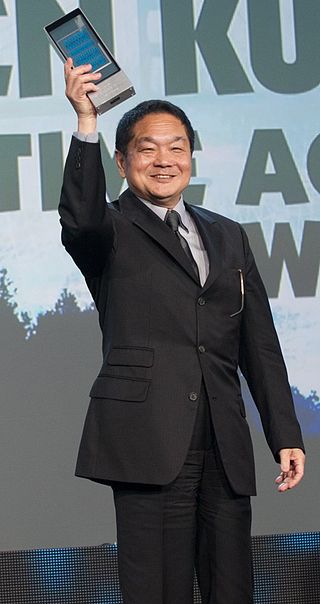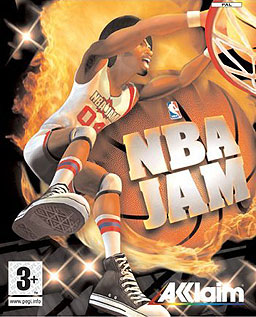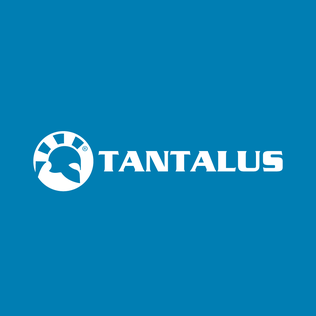In the history of video games, the sixth generation era is the era of computer and video games, video game consoles, and handheld gaming devices available at the turn of the 21st century, starting on November 27, 1998. Platforms in the sixth generation include consoles from four companies: the Sega Dreamcast (DC), Sony PlayStation 2 (PS2), Nintendo GameCube (GC), and Microsoft Xbox. This era began on November 27, 1998, with the Japanese release of the Dreamcast, which was joined by the PlayStation 2 on March 4, 2000, the GameCube on September 14, 2001 and the Xbox on November 15, 2001, respectively. In March 31, 2001, the Dreamcast was among the first to be discontinued. Xbox in 2006, GameCube in 2007 and PlayStation 2 was the last, in January 2013. Meanwhile, the seventh generation of consoles started on November 22, 2005, with the launch of the Xbox 360.

Ken Kutaragi is a Japanese engineering technologist and businessman. He is the former chairman and CEO of Sony Interactive Entertainment (SIE), the video game division of Sony Corporation, and current president and CEO of Cyber AI Entertainment. He is known as "The Father of the PlayStation", as he oversaw the development of the original console and its successors and spinoffs, including the PlayStation 2, PlayStation Portable and the PlayStation 3. He departed Sony in 2007, a year after the PlayStation 3 was released.

Sony Interactive Entertainment LLC (SIE) is a multinational video game and digital entertainment company owned by Sony. SIE primarily operates the PlayStation brand of video game consoles and products. In 1993, Sony and Sony Music Entertainment Japan jointly established Sony Computer Entertainment Inc. in Tokyo. SCE released the video game console PlayStation in Japan the following year and subsequently in the United States and Europe the year after. In 2010, SCE underwent a corporate split and established Sony Network Entertainment International (SNEI). SNEI provided gaming-related services through the PlayStation Network, including the sale of game titles and content on the PlayStation Store, as well as offering PlayStation Plus. In 2016, SCE and SNEI merged to form Sony Interactive Entertainment LLC, with its headquarters located in San Mateo, California, U.S.
Homebrew, when applied to video games, refers to games produced by hobbyists for proprietary video game consoles which are not intended to be user-programmable. The official documentation is often only available to licensed developers, and these systems may use storage formats that make distribution difficult, such as ROM cartridges or encrypted CD-ROMs. Many consoles have hardware restrictions to prevent unauthorized development.
MLB 2K was a series of baseball video games that was developed by Visual Concepts and Kush Games, and published by 2K. The series was licensed by, and based on, the Major League Baseball professional baseball organization. It was a successor to the World Series Baseball games, which were published by Sega.
Left Field Productions, Inc. was an American independent video game development studio located in Ventura, California. Founded in 1994 by industry veterans John Brandwood, Jeff Godfrey and Mike Lamb, Left Field is probably best known for their time spent as a Nintendo third-party developer, during which they designed the critically acclaimed Nintendo 64 game Excitebike 64.

NBA Jam is a 3-on-3 basketball video game published by Acclaim Entertainment for the PlayStation 2 and Xbox in 2003. It is part of the NBA Jam series. The game was announced on May 12, 2003. The play-by-play is voiced by Tim Kitzrow. There was also originally to be a GameCube version of the game.
The 2000s was the fourth decade of the video game industry. It was a decade that was primarily dominated by Sony, Nintendo, newcomer Microsoft, and their respective systems. Sega, being Nintendo's main rival in the 1980s and 1990s, left the console market in 2002 in favor of returning to third-party development, as they once were. Overall the decade saw the last of the low resolution three-dimensional polygons of the 1990s with the emergence of high definition games, and often focused on developing immersive and interactive environments, implementing realistic physics, and improving artificial intelligence. The sixth and seventh generation of video game consoles went on sale, including the PlayStation 2, Wii, Xbox, PlayStation 3, Game Boy Advance and Xbox 360. Notable games released in the 2000s included Half-Life 2, Wii Sports, Grand Theft Auto III, The Sims, Tony Hawk's Pro Skater 3, Star Wars: Knights of the Old Republic, Batman: Arkham Asylum, Super Mario Galaxy, the Halo trilogy, and Call of Duty 4: Modern Warfare.
The seventh generation of home video game consoles began on November 22, 2005, with the release of Microsoft's Xbox 360 home console. This was followed by the release of Sony's PlayStation 3 on November 17, 2006, and Nintendo's Wii on November 19, 2006. Each new console introduced new technologies. The Xbox 360 offered games rendered natively at high-definition video (HD) resolutions, the PlayStation 3 offered HD movie playback via a built-in 3D Blu-ray Disc player, and the Wii focused on integrating controllers with movement sensors as well as joysticks. Some Wii controllers could be moved about to control in-game actions, which enabled players to simulate real-world actions through movement during gameplay. By this generation, video game consoles had become an important part of the global IT infrastructure; it is estimated that video game consoles represented 25% of the world's general-purpose computational power in 2007.

Tantalus Media is an Australian video game developer based in Melbourne. It was founded in 1994 by programmers Andrew Bailey and Trevor Nuridin. Since its inception, Tantalus has developed almost 100 games and has won multiple game awards. In March 2021, Keywords Studios acquired 85% of Tantalus Media for US$46.8 million.

The PlayStation 2 (PS2) is a home video game console developed and marketed by Sony Interactive Entertainment. It was first released in Japan on 4 March 2000, in North America on 26 October 2000, in Europe on 24 November 2000, and in Australia on 30 November 2000. It is the successor to the original PlayStation, as well as the second installment in the PlayStation brand of consoles. As a sixth-generation console, it competed with Nintendo's GameCube, Sega's Dreamcast, and Microsoft's Xbox. It is the best-selling video game console of all time, having sold over 155 million units worldwide.

The Xbox is a home video game console manufactured by Microsoft that is the first installment in the Xbox series of video game consoles. It was released as Microsoft's first foray into the gaming console market on November 15, 2001, in North America, followed by Australia, Europe and Japan in 2002. It is classified as a sixth-generation console, competing with Sony's PlayStation 2 and Nintendo's GameCube. It was also the first major console produced by an American company since the release of the Atari Jaguar in 1993.

UFO Interactive Games, based in City of Industry, California, is an American publisher of interactive video game content, developing on multiple platforms with a focus on original and mass-market gaming software. As an official third party licensee of Nintendo of America and Sony Computer Entertainment of America, UFO Interactive Games has published numerous titles for the PlayStation 3, Xbox 360, Nintendo DS, Wii, PlayStation 2 and PlayStation Portable consoles.
The AFL video game series is a series of Australian rules football video games licensed and based on the VFL/AFL.
Iron Galaxy Studios, LLC is an American video game developer studio founded on August 14, 2008, and based in Chicago, Illinois, with a second studio in Orlando, Florida that was opened in 2012, a third studio in Nashville, Tennessee in 2022, and a fourth in Austin, Texas. Iron Galaxy often collaborates with publishers and developers to provide "technical consulting", port games to different platforms, co-development, lead development, and support.

Majesco Entertainment Company is an American video game publisher and distributor based in Hazlet, New Jersey. The company was founded as Majesco Sales in Edison, New Jersey in 1986, and was a privately held company until acquiring operation-less company ConnectivCorp in a reverse merger takeover, becoming its subsidiary and thus a public company on December 5, 2003. ConnectivCorp later changed its name to Majesco Holdings Inc. on April 13, 2004.
Game development kits (GDK) are specialized hardware and software used to create commercial video games for game consoles. They may be partnered with game development tools, special game engine licenses, and other middleware to aid video game development. GDKs are typically not available to the public, and require game developers to enter an agreement, partnership, or program with the hardware manufacturer to gain access to the hardware. As console generations pass, development kits often get sold through websites like eBay without repercussions. This is often because the console manufacturers discontinue certain development programs as time passes.

In video games with online gaming functionality, also called cross-compatible play, cross-platform play, crossplay, or cross-play describes the ability of players using different video game hardware to play with each other simultaneously. It is commonly applied to the ability for players using a game on a specific video game console to play alongside a player on a different hardware platform such as another console or a computer. A related concept is cross-save, where the player's progress in a game is stored in separate servers, and can be continued in the game but on a different hardware platform.

Paon DP Co., Ltd. (株式会社パオン・ディーピー) is a Japanese video game developer. The company was founded in August 2004 as DP Inc. and merged with Paon Corporation, Ltd. in March 2015 to form Paon DP.










